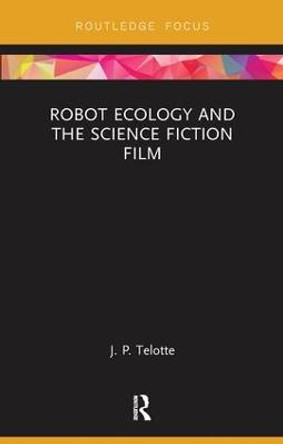Description
This book offers the first specific application in film studies of what is generally known as ecology theory, shifting attention from history to the (in this case media) environment. It takes the robot as its subject because it has attained a status that resonates not only with some of the key concerns of contemporary culture over the last century, but also with the very nature of film. While the robot has given us a vehicle for exploring issues of gender, race, and a variety of forms of otherness, and increasingly for asking questions about the very nature and meaning of life, this image of an artificial being, typically anthropomorphic, also invariably implicates the cinema's own and quite fundamental artificing of the human. Looking across genres, across specific media forms, and across closely linked conceptualizations, Telotte sketches a context of interwoven influences and meanings. The result is that this study of the cinematic robot, while mainly focused on science fiction film, also incorporates its appearance in, for example, musicals, cartoons, television, advertising, toys, and literature.
About the Author
J. P. Telotte is a professor of film and media at Georgia Tech. Co-editor of the journal Post Script, he has published widely on film and television with a special emphasis on science fiction. Among his recent publications are The Essential Science Fiction Television Reader, Science Fiction Double Feature, and Science Fiction TV.
Book Information
ISBN 9781138649583
Author J. P. Telotte
Format Hardback
Page Count 120
Imprint Routledge
Publisher Taylor & Francis Ltd
Series Routledge Focus on Film Studies
Weight(grams) 272g
Details
Series: |
Routledge Focus on Film Studies |
Imprint: |
Routledge |















